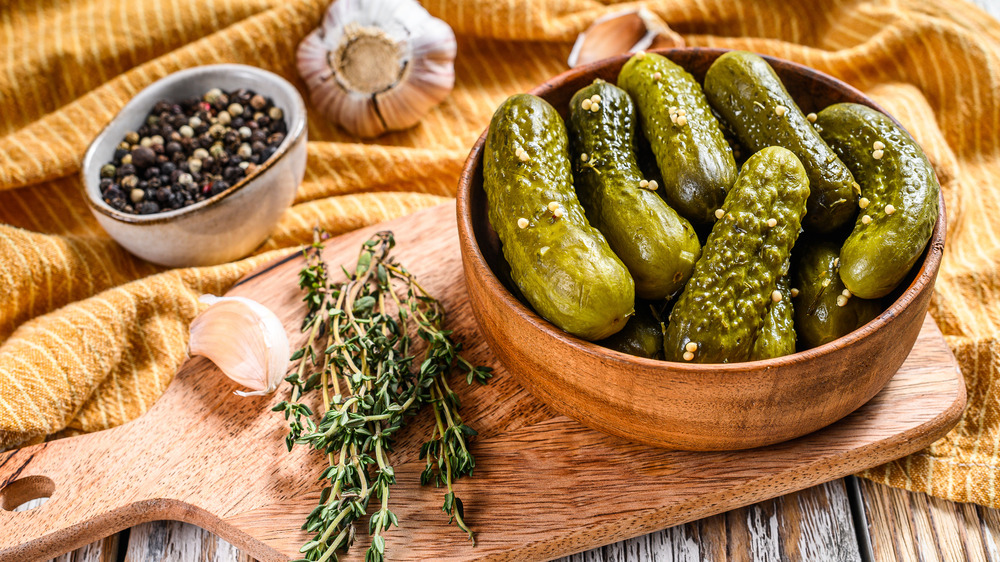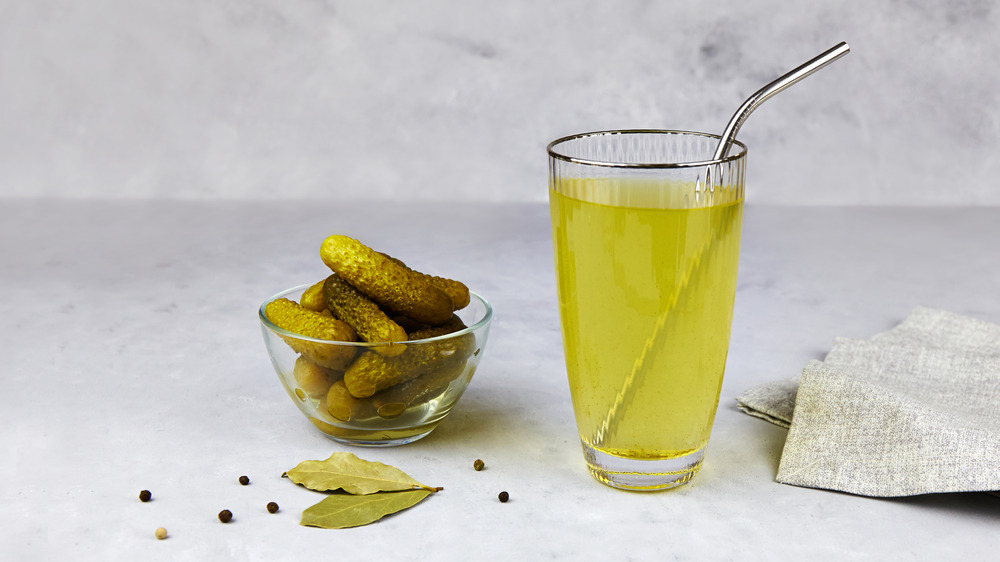When You Eat Too Many Pickles, This Is What Happens
Is there anything more satisfying than the delicious, salty crunch of biting into a pickle? Whether you like the tangy taste of dill, or prefer the sweetness of a sliced bread and butter, there's no denying that pickles make a great addition to a lunch plate — or a snack all on their own. The zesty bites are made by pickling cucumbers in a vinegar brine concoction for a specified length of time — and the end result is the perfect garnish.
Pickles do boast a number of nutritional benefits, too. They're a good source of both vitamins A and K, which can help boost the immune system, strengthen vision, and improve bone health (via Healthline and Medical News Today). As the main ingredient, cucumbers also contain high amounts of beta-carotene, a compound that may help protect against heart disease, stroke, and respiratory illnesses, according to WebMD. In addition, the vegetable contains a number of health-boosting antioxidants, which protect against cell damage and help reduce the risk of certain health issues, like inflammation, cancer, and heart disease, according to Medical News Today. Pickles also contain calcium and potassium, which make them a good pick-me-up for athletes who need to boost electrolytes after a strenuous workout.
Pickles should be enjoyed in moderation for this reason
However, there is one major downside when it comes to eating pickles: too much salt. One single dill pickle contains a whopping two-thirds of the recommended daily sodium intake, according to WebMD, so eating just two pickles in a day will quickly exceed the ideal limit. Consuming foods that are high in sodium can have some detrimental health effects, particularly for people who suffer from high blood pressure or kidney issues, according to Cleveland Clinic.
If overeaten, the high sodium content in pickles can also lead to digestive issues. In some individuals, consuming too much sodium can cause upset stomach, bloating, diarrhea, and abdominal pain and discomfort, according to LiveStrong. Excessive salt can also cause water retention and swelling, which can lead to a spike in blood pressure. High blood pressure can cause a number of health issues, including increased risk of stroke, cancer, and heart attack.
Kidneys are responsible for filtering excess sodium out of the body, so eating too many pickles can also overtax these important organs, as they must work harder to return the body to its normal sodium levels. Therefore, frequently eating pickles or drinking pickle juice may not be a good idea for individuals with kidney conditions.
While pickles do contain a good deal of health-boosting vitamins and antioxidants, they are a food that is best enjoyed in moderation.

